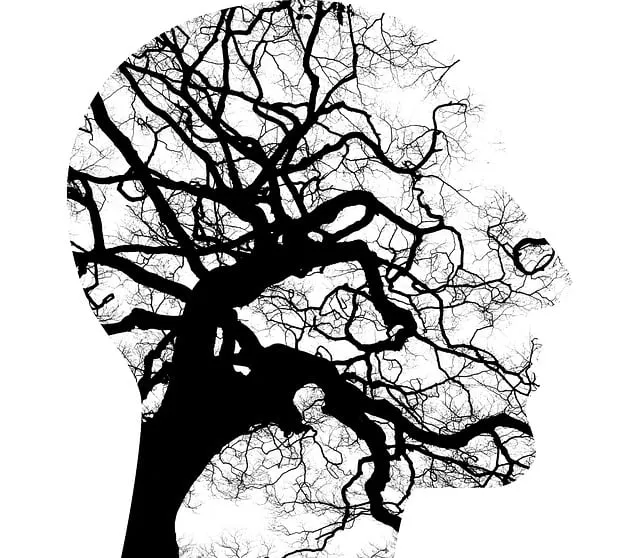Westminster Kaiser Permanente psychiatry emphasizes stress management as a vital component of overall health, offering tailored workshops and coaching that empower individuals to combat chronic stress through mindfulness, cognitive behavioral therapy (CBT), breathing exercises, and early depression prevention. These structured programs combine education with interactive activities, personalization, and continuous improvement based on data, aiming to build resilience, promote well-being, and effectively navigate life's challenges.
Stress management workshops are a powerful tool for organizations aiming to support employee well-being. This comprehensive guide explores the process of designing and implementing such programs, focusing on the unique context of Westminster Kaiser Permanente Psychiatry. From understanding the profound impact of stress to measuring success, each step is crucial in fostering a healthier work environment. Discover effective strategies tailored to this psychiatric setting, offering a holistic approach to enhance resilience and overall mental health.
- Understanding Stress and Its Impact: A Necessary Foundation
- Designing Effective Stress Management Workshops
- Implementing the Program at Westminster Kaiser Permanente Psychiatry
- Measuring Success and Continuous Improvement Strategies
Understanding Stress and Its Impact: A Necessary Foundation

Stress is a universal experience, but its impact on our well-being can vary greatly. Understanding stress isn’t just about recognizing its presence; it’s about comprehending how it manifests physically, emotionally, and cognitively. At Westminster Kaiser Permanente psychiatry, we recognize that chronic stress can lead to significant health issues, affecting everything from cardiovascular health to mental wellness. This is why building resilience against stress has become a cornerstone of our approach to patient care.
By participating in stress management workshops, individuals not only gain valuable stress reduction methods but also learn how to develop and strengthen their inherent resilience. These programs, designed by experts, offer practical tools for navigating life’s challenges, promoting healthier coping mechanisms, and fostering overall mental wellness coaching. Through a comprehensive understanding of stress, participants are empowered to make informed choices that support their long-term well-being.
Designing Effective Stress Management Workshops

Designing effective stress management workshops requires a structured approach that caters to both individual and group needs. At Westminster Kaiser Permanente psychiatry, experts emphasize the importance of balancing education with interactive activities. Workshops should begin with a comprehensive Risk Assessment for Mental Health Professionals to identify participants’ unique stressors and learning styles. This tailored assessment guides instructors in personalizing content, ensuring every attendee benefits from the session.
Incorporating Mind Over Matter Principles is pivotal to empowering individuals with coping strategies. These workshops can delve into techniques such as mindfulness meditation, cognitive behavioral therapy (CBT) strategies, and stress-reducing physical activities. For instance, teaching simple breathing exercises or progressive muscle relaxation can instantly calm participants. Additionally, addressing specific mental health concerns like Depression Prevention through early intervention and awareness is a game-changer, fostering a supportive environment where attendees gain valuable tools to manage stress effectively.
Implementing the Program at Westminster Kaiser Permanente Psychiatry

Westminster Kaiser Permanente Psychiatry has been at the forefront of implementing innovative wellness programs, including Stress Management Workshops Organization, to enhance patient care. These workshops cater to various mental health concerns, with a particular focus on anxiety relief and improving social skills. By organizing such sessions, the psychiatric department aims to provide additional support to individuals seeking holistic solutions for their well-being.
The program’s success lies in its tailored approach, offering personalized strategies for stress management. Through interactive activities and group discussions, participants gain practical tools to cope with daily stressors. This proactive initiative not only complements traditional therapy but also empowers individuals to take charge of their mental health, fostering a sense of resilience and improved overall quality of life.
Measuring Success and Continuous Improvement Strategies

Measuring success is a vital component of any Stress Management Workshop organization. By setting clear and quantifiable goals, Westminster Kaiser Permanente psychiatry can assess the effectiveness of their programs. This involves collecting participant feedback through post-workshop surveys, tracking attendance rates, and evaluating changes in emotional healing processes through follow-up sessions. Analyzing these metrics provides valuable insights into what aspects of the workshops resonate most with attendees and identify areas for improvement.
Continuous improvement strategies are essential to enhance the overall quality of Stress Management Workshops. Based on the data gathered, organizers can make informed decisions to adapt content, refine facilitation techniques, and incorporate new research findings related to coping skills development. This iterative process ensures that the workshops remain relevant, engaging, and aligned with participants’ evolving needs, ultimately fostering a more supportive and effective learning environment.
Stress management workshops, as implemented successfully at Westminster Kaiser Permanente Psychiatry, offer a powerful tool for enhancing employee well-being and productivity. By combining education on stress understanding and impact with practical tools for coping, these programs can lead to significant improvements in mental health and job satisfaction. Continuous improvement strategies, grounded in measurable success, ensure that such initiatives remain effective and relevant in the evolving landscape of workplace wellness, benefiting both individuals and organizations alike.






